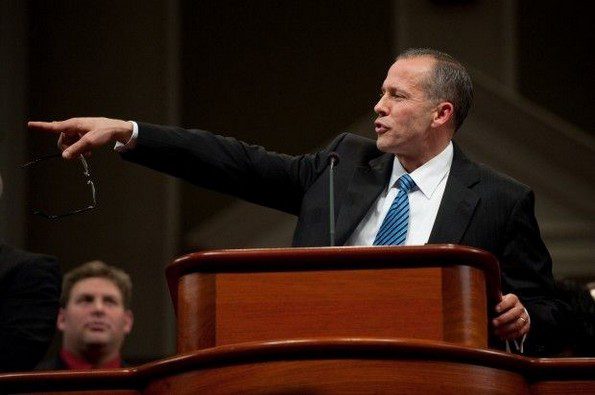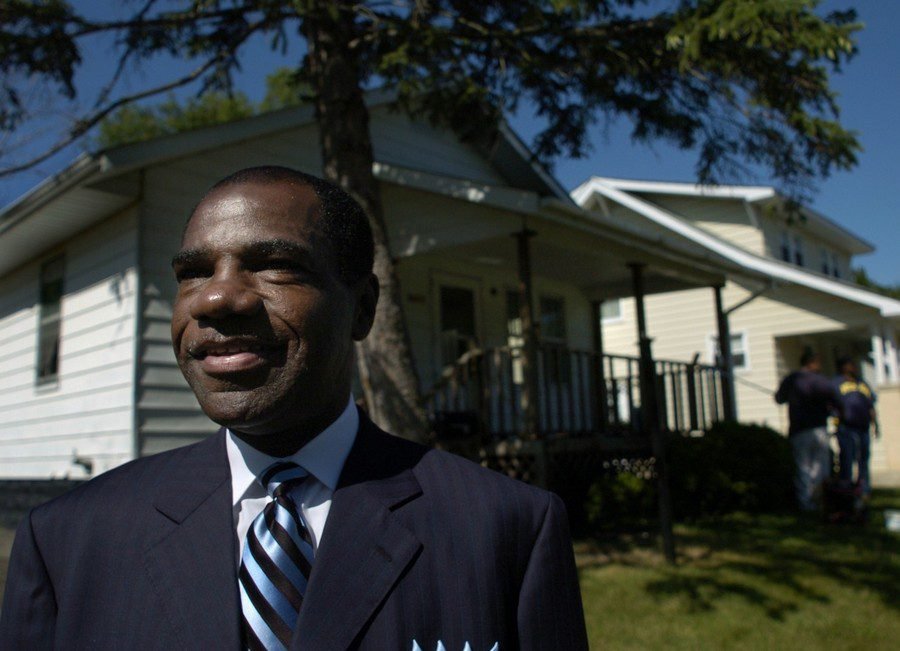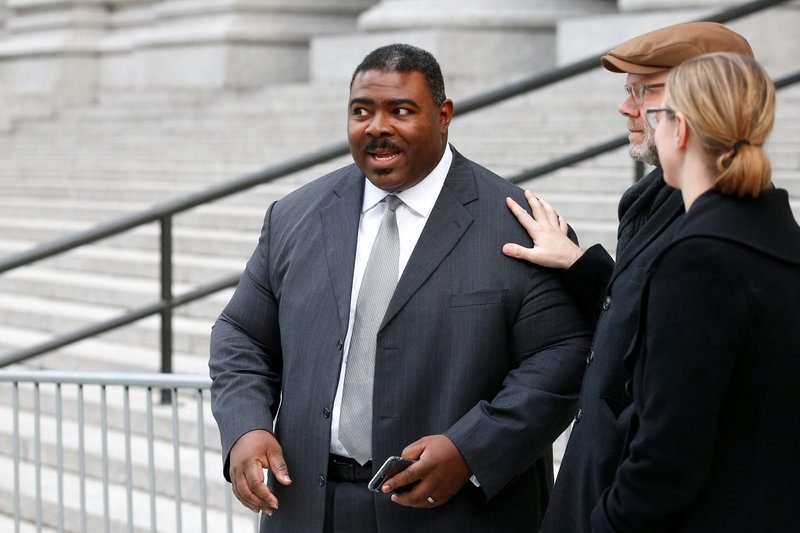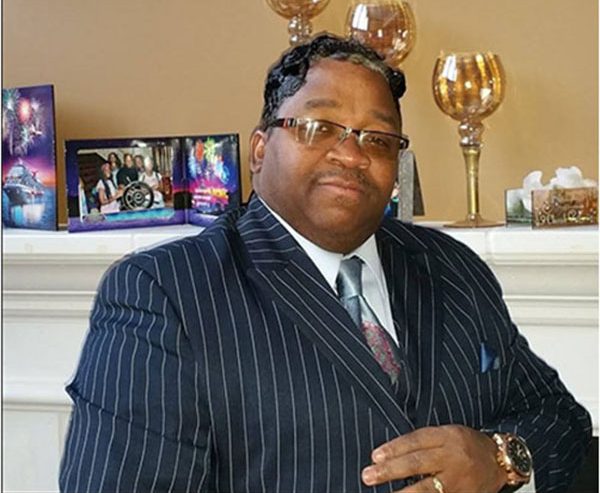
Former pastor and convicted felon Jack Schaap continues to cast a long shadow over the First Baptist Church of Hammond congregation. According to the Northwest Indiana Times, Schaap and Deacon Thomas Kimmel pushed a fraudulent investment scheme that resulted in church members losing their investment. In 2014, Kimmel was convicted of fraud, sentenced to 22 years in prison, and ordered to pay $16.5 million in restitution. Schaap, who is serving a 12 year prison sentence for having sex with a church teenager, received a one percent commission on each church member’s investment. Kimmel received a ten percent commission. Neither man disclosed these commission to the church.
Two former First Baptist families are suing the church to recoup their lost investment. Kyle Telechan, a reporter for the Times had this to say about the latest First Baptist scandal:
The First Baptist Church of Hammond is being sued by two couples for money they said was lost in an investment scheme pushed by a former deacon who allegedly was hired by the church to provide “one-on-one financial counseling.”
….
The lawsuit against First Baptist Church of Hammond, Inc., was filed this week by Joseph Elwell, Crystal Elwell, Robert Baldwin, and Deborah Baldwin, individually and as custodian for her two minor children. The Elwells are former Schererville residents now living in Yuma, Arizona, while Deborah Baldwin is a former Crown Point resident now living with her husband, Robert, in Kiel, Wisconsin.
Rick Hammond, an attorney representing the church, said Friday the church “believes the charges are baseless. That there has been absolutely no wrongdoing on behalf of the church and the church stands by its good works and the missionary work it has been doing in the community and around the world,” for decades.
“There are times when individuals may engage in wrongful conduct, but,” he said, “many people want to take that as an opportunity to wrongfully criticize the church.”
According to federal prosecutors, Kimmel sold investments in Sure Line Acceptance Corp. in churches across the country. The federal indictment against Kimmel characterized the corporation as a Ponzi scheme where investors were paid their interest from new investor money.
The lawsuit seeks to recover approximately $225,000 in losses supposedly incurred by the Elwells and $235,400 incurred by the Baldwins.
According to the lawsuit, by January 2006 Schapp (sic) had hired Kimmel to act as an employee of First Baptist Church for the purposes of providing financial advice, debt counseling, budgeting and investment advice for members of the First Baptist Church. Schaap allegedly informed church members during services that Kimmel “was the church’s financial adviser with offices on church premises and was available to members of the church for financial advice.”
The lawsuit states that Kimmel also “represented to parishioners” he had invested $450,000 of his own money in Sure Line and First Baptist Church of Hammond and Schaap had invested $1 million in the corporation.
According to the lawsuit, First Baptist Church and Schapp (sic) could “have terminated Kimmel’s ability to provide financial services to parishioners, solicit the Sure Line Investments, and the right to use First Baptist Church Office for the same purposes at any time.”
The lawsuit contends an attorney named David Gibbs, retained by First Baptist Church, advised Schaap around November 2007 they should not be offering Sure Line Investments to parishioners “because it could violate Indiana law and the parishioners were largely unsophisticated investors.”
“There are times when individuals may engage in wrongful conduct, but,” he said, “many people want to take that as an opportunity to wrongfully criticize the church.”
According to federal prosecutors, Kimmel sold investments in Sure Line Acceptance Corp. in churches across the country. The federal indictment against Kimmel characterized the corporation as a Ponzi scheme where investors were paid their interest from new investor money.
The lawsuit seeks to recover approximately $225,000 in losses supposedly incurred by the Elwells and $235,400 incurred by the Baldwins.
According to the lawsuit, by January 2006 Schapp had hired Kimmel to act as an employee of First Baptist Church for the purposes of providing financial advice, debt counseling, budgeting and investment advice for members of the First Baptist Church. Schaap allegedly informed church members during services that Kimmel “was the church’s financial adviser with offices on church premises and was available to members of the church for financial advice.”
The lawsuit states that Kimmel also “represented to parishioners” he had invested $450,000 of his own money in Sure Line and First Baptist Church of Hammond and Schaap had invested $1 million in the corporation.
According to the lawsuit, First Baptist Church and Schapp (sic) could “have terminated Kimmel’s ability to provide financial services to parishioners, solicit the Sure Line Investments, and the right to use First Baptist Church Office for the same purposes at any time.”
The lawsuit contends an attorney named David Gibbs, retained by First Baptist Church, advised Schaap around November 2007 they should not be offering Sure Line Investments to parishioners “because it could violate Indiana law and the parishioners were largely unsophisticated investors.”
While Jack Schaap supporters — yes, he still has them — will place all the blame on Kimmel, those of us who understand how First Baptist Church operates know that the authoritarian Schaap had full knowledge of what Kimmel was doing. Schaap and Kimmel used trusting congregants as a means to amass wealth. In Schaap’s case, not only did he sexually prey on a trusting church teenager, he also financially preyed on numerous church families. And if it is true that Schaap indeed had $1 million invested in Sureline Acceptance Corporation, perhaps someone should be asking where this money came from.
The financial aspects of the lives of former pastors Jack Hyles and Jack Schaap and First Baptist Church have never been investigated. Those of us who spent years in the Independent Fundamentalist Baptist (IFB) have heard countless stories about the largess of Hyles and Schaap. While these anecdotal stories make for wonderful sermon illustrations, few bother to question their veracity. Defenders of Hyles’ empire would have people believe that Hyles and Schaap were selfless servants of the most high God. My gut tells me that these men are really far different from the persona presented to the thousands of people who called them pastor. To those who would suggest that Kimmel’s and Schaap’s investment scheme had nothing to do with Jack Hyles, I say this: Jack Hyles conditioned generations of congregants to accept without question his “leadership.” Hyles’ son-in-law Schaap followed in his father-in-law’s authoritarian footsteps. Both men were megalomaniacs who — in the name of God — abused, misused, and took advantage of countless church members. Until First Baptist congregants are able to see this, they will continue to be easy prey for so called “men of God.”
Note
Story on Thomas Kimmel’s conviction and sentencing.
Class action lawsuit filed against First Baptist.
Share This Post On Social Media:





